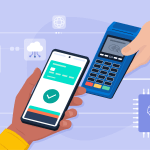Do you have a to-do list of pesky tasks lingering over you? We’re talking about the ones that must be done to execute a campaign: gathering and analysing data, creating catchy email subject lines, determining the right audience to target, and so much more. These tasks can steal your time — and maybe even your sanity. But now there’s a way to reduce that heavy lifting, helping you focus on campaign success. Let us introduce you to your new digital assistant: AI.
As brands look for ways to get closer to consumers, more than half of marketers (62%) say they’ve invested in the power of AI. Our most recent State of Marketing survey found that three out of the top four AI use cases are related to automation, highlighting the importance of scaling up speed and effectiveness.
Let’s take a look at 9 ways using AI as a digital assistant can increase the effectiveness and efficiency of your campaigns. It’s time to say goodbye to the redundant manual campaign tasks marketers wish they didn’t have to do – and let AI help make the most of your time.
1. Make better decisions with automated data analysis and insights
AI can analyse large volumes of campaign data, including customer behaviour, campaign performance metrics, and market trends. It can identify patterns, extract insights, detect correlations, and provide actionable recommendations to improve campaign strategies and targeting.
You’ll get a deeper understanding of customers and campaign performance, enabling you to make informed decisions and find success faster.
2. Increase engagement and conversions with audience segmentation
After analysing the customer data, your AI digital assistant can then segment audiences based on demographics, behaviour, preferences, purchase history, and other important attributes. AI eliminates the manual effort required for segmenting audiences and targets specific customers with more relevant offers.
When you’re able to personalise messaging for different segments, you’ll see campaigns succeed more.
3. Anticipate your customer’s needs with predictive analytics
AI predictive models use historical data to forecast customer behaviour, such as likelihood to convert, churn, or engage with specific campaign elements.
This helps you stay one step ahead to proactively address customer needs and budget resources effectively.
4. Save time with content generation and optimisation
Creating unique content frequently can be one of the most time-consuming tasks for many marketers — but one an AI digital assistant can help with. AI, powered by natural language processing (NLP) can generate content — such as ad copy, email subject lines, and social media posts — that resonates with your customers.
You can provide the finishing touches to make sure the content is in your voice and tone. It can also optimise your content by analysing performance data, identifying high-performing elements, and suggesting improvements.
5. Streamline workflows with campaign automation
AI can automate various aspects of campaign execution, such as scheduling and deploying ads, sending targeted emails, or managing social media posts. This reduces manual effort and ensures that your campaign runs on time.
What can you do with the time freed up, thanks to AI? Focus on strategy and innovative ideas, helping you build better customer relationships.
Move faster with AI
Focus on innovation, not repetitive tasks. See how generative AI is transforming marketing.



6. Clearly show campaign success with performance tracking and reporting
According to our State of Marketing report, 72% of high-performing marketers are able to analyse data in real time, giving them an advantage when it comes to responding to and optimising campaign performance.
Your AI digital assistant can automate the tracking and reporting of campaign performance metrics — in ways that anyone can understand. AI can generate real-time dashboards and visually-pleasing customised reports, giving you and your stakeholders a clear view of campaign performance and key metrics, without the need to do it all by hand.
This helps you make data-driven decisions, optimise campaigns on-the-go, and demonstrate the value of your efforts to stakeholders.
7. See what works best with A/B testing
AI can perform A/B tests on campaign elements, such as ad variations, landing pages, or email designs. It analyses performance data, identifies winning variations, and helps you continuously refine your strategies.
Unify your marketing team
When you bring all your marketing data together and collaborate with your teams on one single platform, you’ll move more efficiently — and become closer to your customers. See how you can get started.



8. Grow revenue with lead scoring and nurturing
With AI, you can automate lead scoring by analysing lead data, behaviour, and engagement history. It assigns scores to leads based on their likelihood to convert and delivers personalised content to move prospects through the sales funnel.
With AI’s lead scoring, your team can focus on the most promising leads and nurture relationships at scale.
9. Improve communication with internal collaboration tools
AI shines as your digital assistant when handling internal collaboration needs. You can use this technology to automate messaging in your department, as well as project management, task assignment, and file sharing. Teams can even apply workflow automations that schedule meetings, send reminders, or organise files — taking care of the little details so you can focus on campaign success.
AI is transforming campaign management by allowing teams to automate manual tasks, freeing marketers to work on more big-picture ideas. With AI as your ally, you can streamline your campaigns, see better results, and start focusing on your next successes.
See what AI can do
Learn how AI can help you move more efficiently and create meaningful customer relationships.































